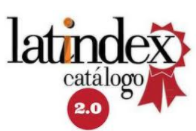President Arturo Frondizi’s "One Single World" and the Antarctic Treaty as an example within his vision
DOI:
https://doi.org/10.35305/cc.vi132.96Keywords:
Frondizi, Argentina’s foreign policy, Antarctic TreatyAbstract
Frondizi assumed the Argentine presidency in May 1958, and, from the beginning, stated that the implementation of a development model was vital for the country progress. From then on, foreign policy was subordinated to achieving this objective, which is why it was characterized as having a pragmatic orientation, despite the international context that prevailed at the time, the Cold War. For this reason as well, throughout his tenure he maintained diplomatic and commercial relations with different countries, without distinction of ideology, whether capitalist or communist. Frondizi assured that in the future we would find ourselves in a completely globalized, disarmed and denuclearized world, which he called “One Single World”. The Antarctic Treaty can be understood as a sample of such thinking. Argentina became a founder country of the Antarctic regime, whereas the scientific cooperation and peace among countries is one of its distinctive features.
Downloads
Downloads
Published
How to Cite
Issue
Section
License

This work is licensed under a Creative Commons Attribution-ShareAlike 4.0 International License.
Aquellos autores/as que tengan publicaciones con esta revista, aceptan los términos siguientes:
- Los autores/as conservarán sus derechos de autor y garantizarán a la revista el derecho de primera publicación de su obra, el cuál estará simultáneamente sujeto a la Licencia Creative Commons Reconocimiento-NoComercial-CompartirIgual 4.0.
- Los autores/as podrán adoptar otros acuerdos de licencia no exclusiva de distribución de la versión de la obra publicada (p. ej.: depositarla en un archivo telemático institucional o publicarla en un volumen monográfico) siempre que se indique la publicación inicial en esta revista.
- Se permite y recomienda a los autores/as difundir su obra a través de Internet (p. ej.: en archivos telemáticos institucionales o en su página web) antes y durante el proceso de envío, lo cual puede producir intercambios interesantes y aumentar las citas de la obra publicada.
















